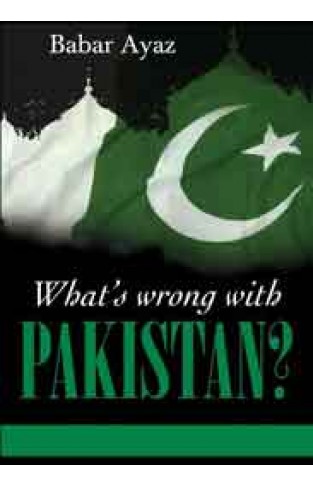A racy narrative packed with a variety of historical facts, enthralling anecdotes & thumbnail sketches of Pakistani leaders.
A courageous, comprehensive and no-holds-barred account, by a veteran journalist, of a 66-year-old nation that is still trying to find its identity and fighting its own demons..
Beginning with the ‘genetic defect’ that Pakistan was born with, Babar Ayaz highlights the numerous problems faced by Pakistan today that have arisen as a result of the country’s foundation being based on religion. What Quaid-e-Azam Muhammad Ali Jinnah managed to achieve as a separate homeland in August 1947 is today being consumed by religious fanaticism. Ayaz attributes such a state of affairs to the Islamization of Pakistani laws, which are in conflict with the twenty-first century value systems. The author next pinpoints how Jinnah failed to recognize the ethno-linguistic diversity of the Pakistan he had created, which needed proper distribution of power between the Centre and the states in the then-existent West Pakistan and East Pakistan. He describes how the centralization of power and the imposition of a single language for both wings of the country led to the dismemberment of Pakistan and the creation of Bangladesh in 1971.
The book also analyzes the ‘unwritten national security policy’ of Pakistan and how it has dictated its foreign policy. Relations with the US, India, China, Saudi Arabia, Iran and Afghanistan are discussed vis-a-vis the overall national security policy. The author contends that the rise of fundamentalism is a global phenomenon, but in Pakistan, it has given birth to a plethora of Islamic militant groups covertly supported by the Pakistani intelligence services. Pakistan has been branded as ‘the most dangerous state of the world’ and the ‘epicentre of terrorism’. He laments the fact that attempts to present the peaceful side of Islam are extremely feeble because of the dominance of the pro-jihad elements, which are pushing the country into a civil war-like situation.
In spite of several years of attempts at indoctrination of the people through mass media and educational institutions, in Pakistan, the anti-Indian feelings and extreme stands on Kashmir have been limited. Ayaz believes that India and the developed world would have to help by being more accommodating and understanding, so that the people of Pakistan can re-invent their country. Without moving towards secularism, the author warns, Pakistan will remain at war with itself as it is torn between the twenty-first century and medieval religious value systems.



